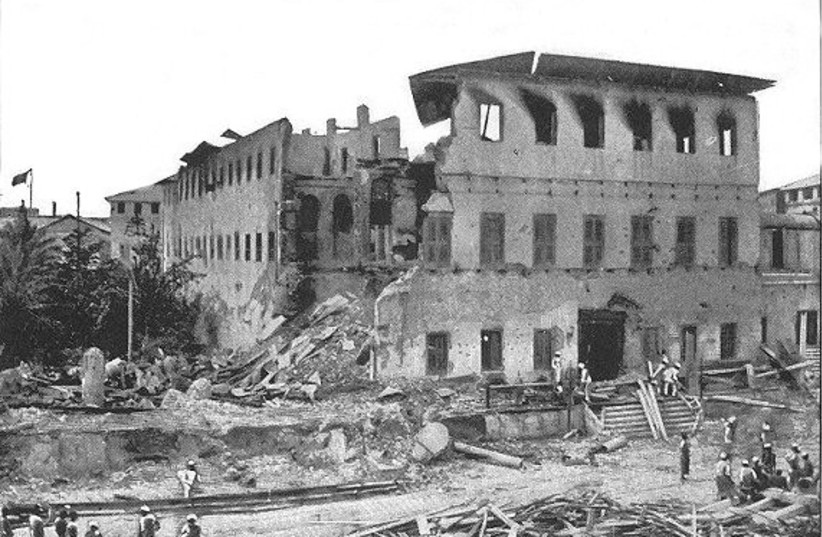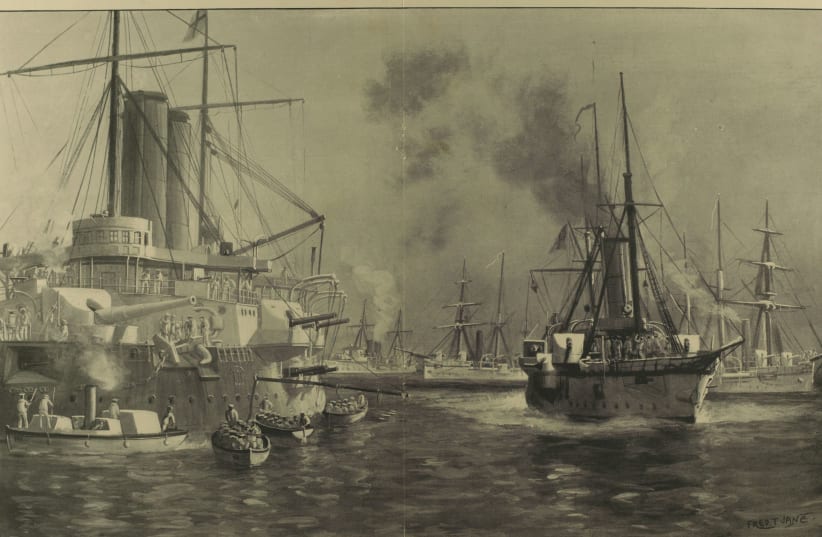August 27 marks 125 years since the Anglo-Zanzibar War, widely regarded as the shortest war in history, lasting between 38 and 45 minutes total.
The background to the war is rooted in European colonialism in Africa during the 19th century. Specifically, British designs on the Zanzibar Sultanate, a sovereign island nation off the coast of East Africa that today forms part of the nation of Tanzania.
Essentially, the war was rooted in the death of Sultan Hamad bin Thuwaini just two days earlier. Thuwaini was favorable to the British and had made agreements in the past to become a British protectorate.
The British were worried about the new sultan, Khalid bin Barghash, as he was not as favorable to their interests.
Under the protectorate agreement, the successor to the sultan should be approved by the British consul. Because Barghash did not do this, it was seen as a casus belli.
The British sent the new sultan an ultimatum that he stand up and leave the palace. However, he instead barricaded himself inside. At 9 a.m. on August 27, 1896, the ultimatum expired, and the war began.
The British forces had three cruisers, two gunboats and a force of 1,050 troops. Facing them was the far larger 2,800 strong Zanzabari army, though they were mostly civilians, palace guards and servants. They also had a royal yacht, the HHS Glasgow, two other small ships, a shore battery, artillery and machine guns.
At exactly 9 a.m., the British began a naval bombardment on the palace, which was largely made of wood. From the very start, the damage was significant, dismounting defenses and blasting through barricades with explosive shells.

The sultan fled at the first shot with all the leading Arabs, who left their slaves and followers to carry on the fighting, Reuters reported at the time, though other sources claim he stayed longer.
The clash between the British ships and the Glasgow was also heavily one-sided, with the British sinking the royal yacht in the shallow harbor.
Ultimately, the sultan fled and the defenders surrendered. The entire war lasted under an hour, with most placing it at around 38 minutes.
Despite its short duration, though, around 500 Zanzibari defenders and civilians were killed in the battle, with two boats (including the Glasgow) sunk. By contrast, the only British casualty was one sailor being wounded.
The war saw Zanzibar lose much of its remaining sovereignty with a new sultan being a British figurehead.
Notably, most of the Zanzibari are said to have supported the British. Further, it was the last rebellion against the colonial rule for the next 67 years.
